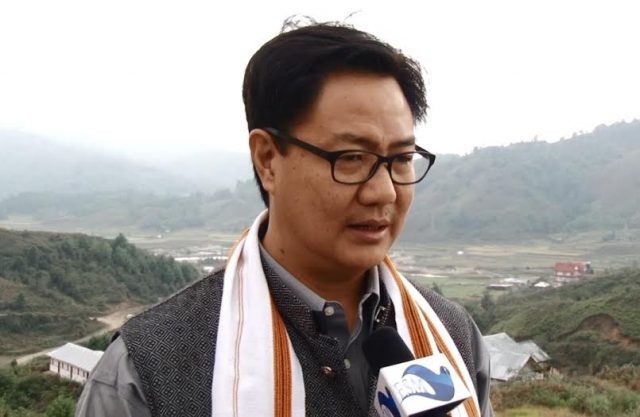
Union Minister of State for Home Kiren Rijiju said currently we do not have any plans yet to push Rohingyas out of the country, but states were asked to identify the illegal immigrants and “act per procedure”.
He also expressed that some of the issues related to national security are non-negotiable. The threat posed by Rohingya influx is well documented, and we will explore it further.
Some liberals and human rights organizations framing an argument that Indian government should consider Rohingya refugee crisis as humanitarian ignoring the very demographic situation and challenges in the bordering states.
Moreover, these liberals playing the religious identity Rohingyas to give a new narrative to debate as “persecution of minorities”, putting aside national interest and security which have utmost importance in democratic set up.
So far the government agencies have roughly estimated the number of illegal immigrants to be around 40,000 who are taking shelter in different parts of the country. Nearly 14,000 were registered with United Nations High Commissioner as Refugees.
The comments made by UNHRC chief Zeid Ra’ad Al Hussein on Indian proposal to deport illegal refugees on security grounds was selective “obligations of due process and the universal principle of non-refoulement”, and linking with internal issues related to religious minority and majority were not well received.
Following the Syrian crisis, entire Europe was divided on apprehensions of allowing and sheltering refugees and building multi cultural societies. But the current developments are forcing them to rethink on dealing with same proposals that were not less than open borders to refugees.
In the midst of these, the selective hue and cry by International bodies on India’s right to exercise its given to power on national security issues after closing following the demographic changes due to immigrants from Banladesha and Rohingyas does not make a point.
Today, Union Home Minister Rajnath Singh indicated that some action will be taken with regard to deportation of Rohingyas, who are considered to be a security threat to Jammu and Kashmir.
Talking to reporters in Jammu and Kashmir, said the Centre has a tough stand towards illegal migrants but a “sympathetic view” towards those displaced within the country and the minorities of Pakistan, Afghanistan and Bangladesh who have become refugees in this country.
Sanjeev Tripathi, former head of Research and Analysis Wing (RAW), points out in Carnegie India, “An analysis of population growth and demographic statistics for Bangladesh and India in the last four censuses of 2011, 2001, 1991, and 1981 suggests that their number exceeds 15 million.
The influx of such a large number of illegal Bangladeshi immigrants, particularly in the border states, has proved to be a huge challenge for India, with serious implications for its resources and national security. It has substantially contributed to changing the demographic pattern in the northeastern states, where locals feel overwhelmed by outsiders. This has adversely affected their way of life and led to simmering tension between the two sides. It has also fueled insurgency,” he added.
Country’s security agencies look this as security threat and a huge strain on its resources, following intelligence reports linking to radical Arakan Rohingya Salvation Army to the Lashkar-e-Taiba; key individuals in ARSA, or its front organisations such as Rohingya Solidarity Organisation, are allegedly close to Hafiz Saeed.
The country is already battling with terrorism and insurgency in most of the especially northern and north-eastern border areas where Muslims are pushing themselves to gain upperhand to play divisive methods.
The demand for a separate Muslim state in the majority Buddist country is essentially political in nature and it has its moorings in a pan-Islamic movement.














